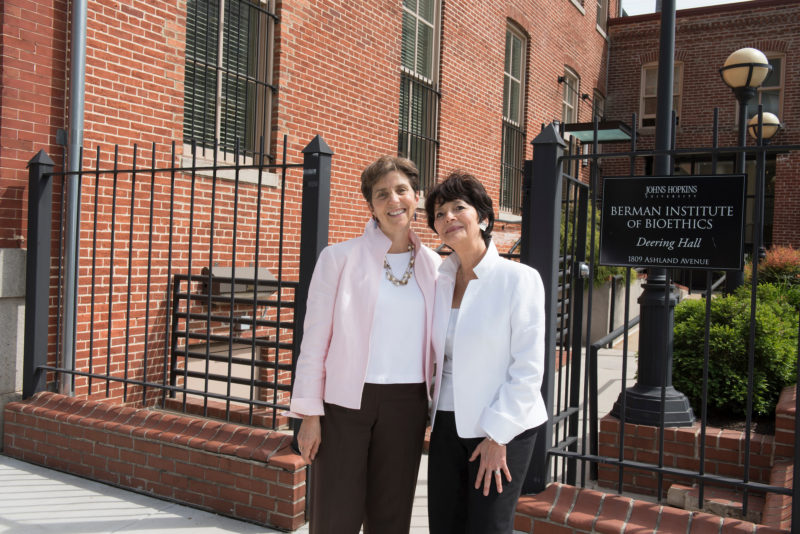Nancy Kass
Nancy Kass, ScD, is the Vice Provost for Graduate and Professional Education and the Phoebe R. Berman Professor of Bioethics and Public Health at Johns Hopkins, where she is also both the Deputy Director for Public Health in the Berman Institute of Bioethics and Professor of Health Policy and Management in the Johns Hopkins Bloomberg School of Public Health. Here, she shares the path that led to her career in bioethics.
Discovering Bioethics
I took a medical ethics class in college at a time when bioethics wasn’t a major and this kind of class was offered only at the medical school. I didn’t think I had a long term interest in bioethics, but I took the class because I was intrigued by the topic. When I came to Hopkins as a public health student, I still didn’t know I wanted to do bioethics. I did know that I wanted to do public health and health policy. I knew I wanted to build my research skills. And I was intrigued by the ethics questions within health policy.
Working as a Bioethicist
Today, I feel like a bioethicist: what I do is bioethics and public health. For me it has been equally important to put forward both my Berman Institute of Bioethics and Bloomberg School of Public Health affiliations. I don’t spend 50% of the time on each; I spend 100% of my time on the integration of the two.
What defines bioethics is the nature of the topic, not the method of inquiry. Bioethics questions refer to problems with moral elements that relate to health, healthcare, science, or technology. The lens or method of inquiry through which one examines moral questions in these topics is not what defines bioethics. For example, one can look at bioethics through a philosophical lens or a legal lens. Bioethics isn’t defined by the approach — it’s defined by the nature of the question.
Suggestions to Students Interested in Bioethics
Today, there are so many resources for students interested in this field. Just begin to immerse yourself in bioethics thinking, or writing, or conferences. That will help you figure out what bioethics is, and how people in bioethics think.
There are particular sites and opportunities that are good general resources. The Hastings Center is one of the oldest ethics centers in the country. It’s a free standing ethics institution and is a great place to start, so I might suggest if you’re a college student interested in bioethics, get a subscription to the Hastings Center Report and read their blog, which will introduce you to a wide variety of issues.
There are also bioethics groups which offer short-term, in-depth exposure. For example, the student bioethics groups here at Hopkins often have faculty speakers. Also, the American Society for Bioethics + Humanities (ASBH) Conference has a student rate for its conferences, which are offered around the country. Another great conference for students interested in ethics and human research is the Public Responsibility for Medicine and Research (PRIM&R). These conferences can give you great short-term, intensive opportunities to increase your learning curve about the field.
I think training in bioethics can help you build a career, but that doesn’t mean that if you haven’t taken classes in bioethics, you can’t think about ethics issues. The benefit of doing a formal program of study is that it forces you to do a lot of reading, analysis, and discussion in bioethics. That will help you become a more sophisticated thinker within bioethics. Of course, you can do reading, writing, and analysis without taking bioethics classes. Could I be a great historian without a degree in history? I probably could, but the degree in history would be a rather efficient route to building the skill set and the literature background that would assist me.
